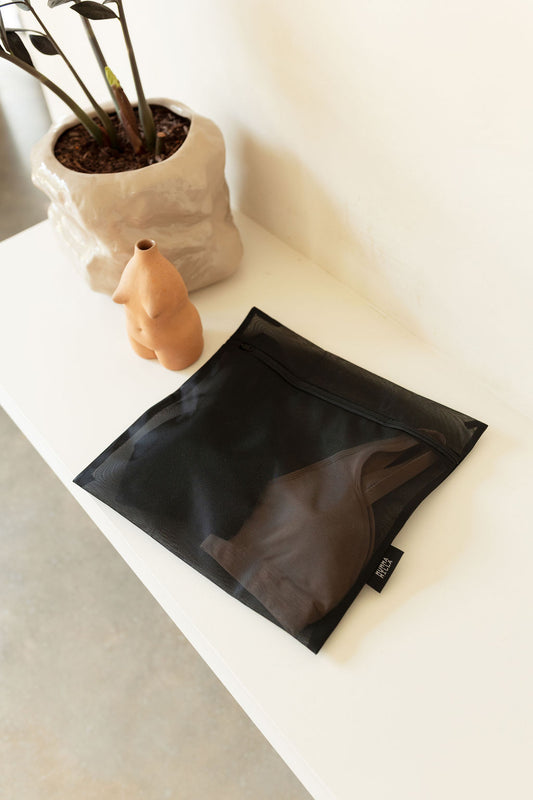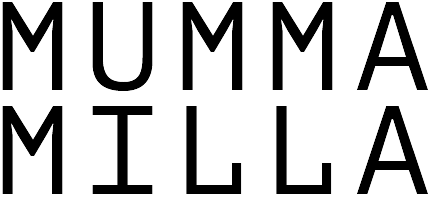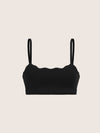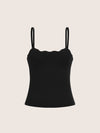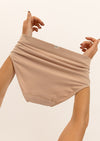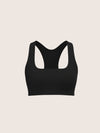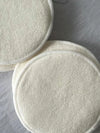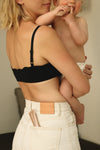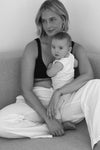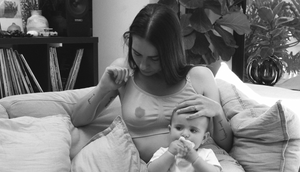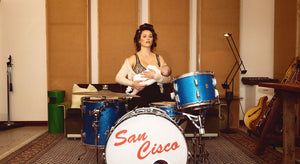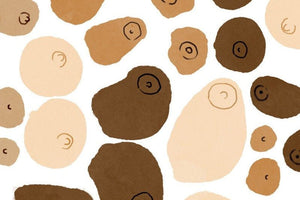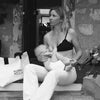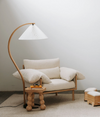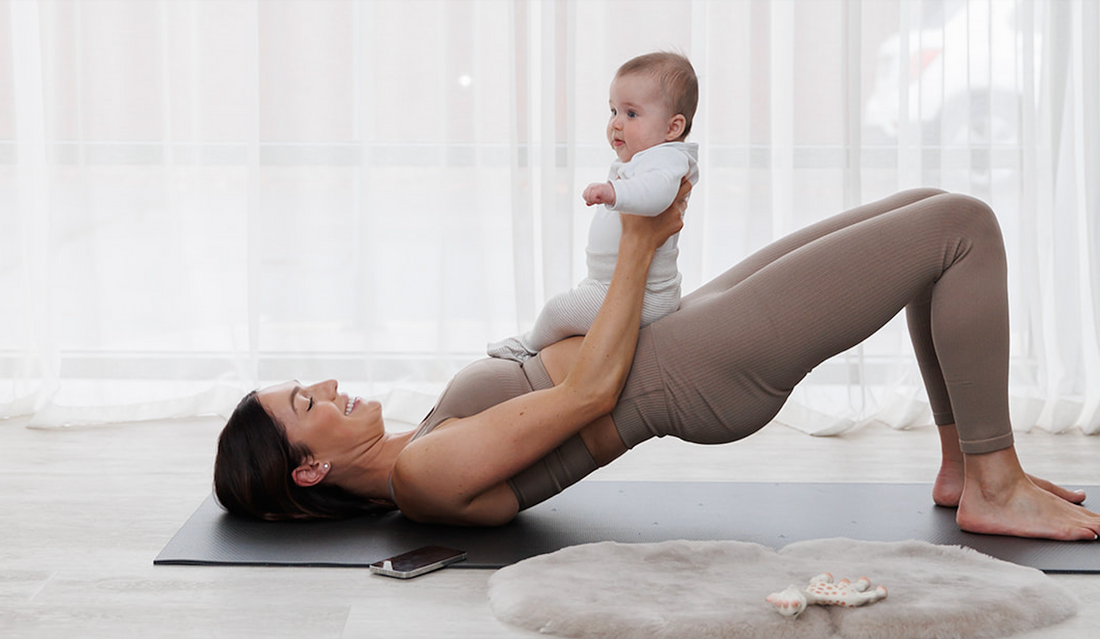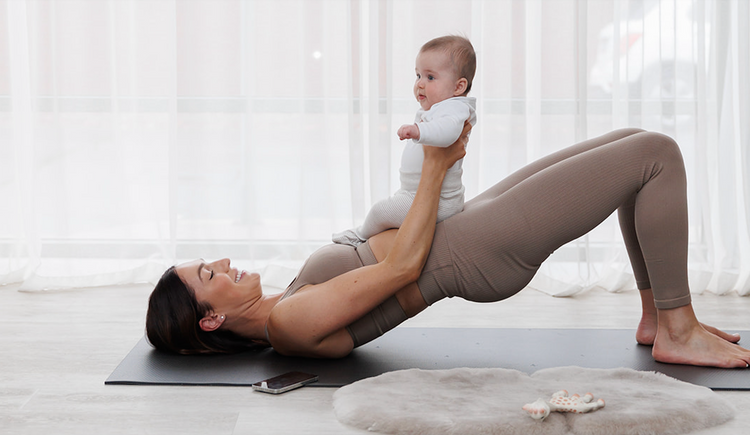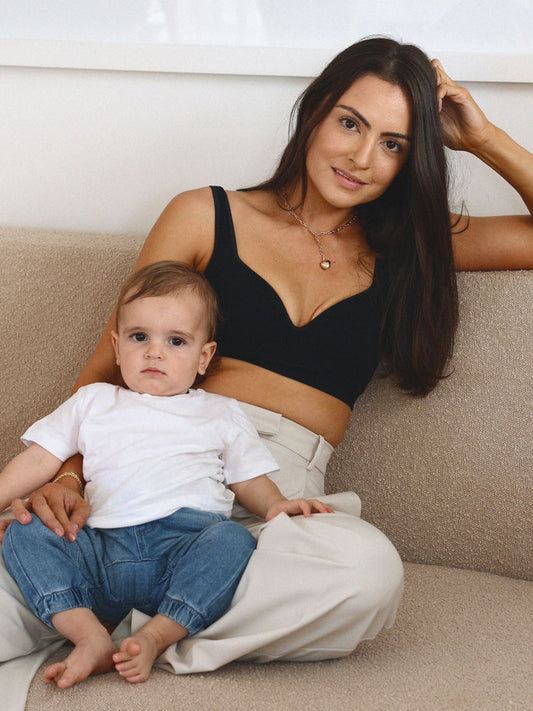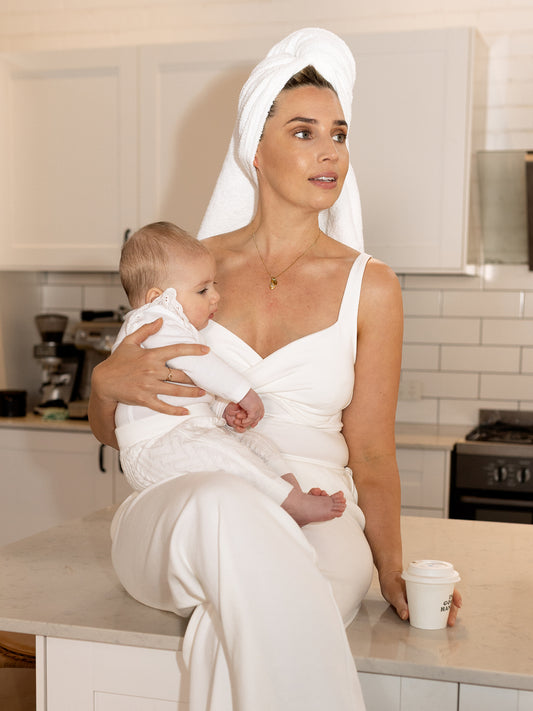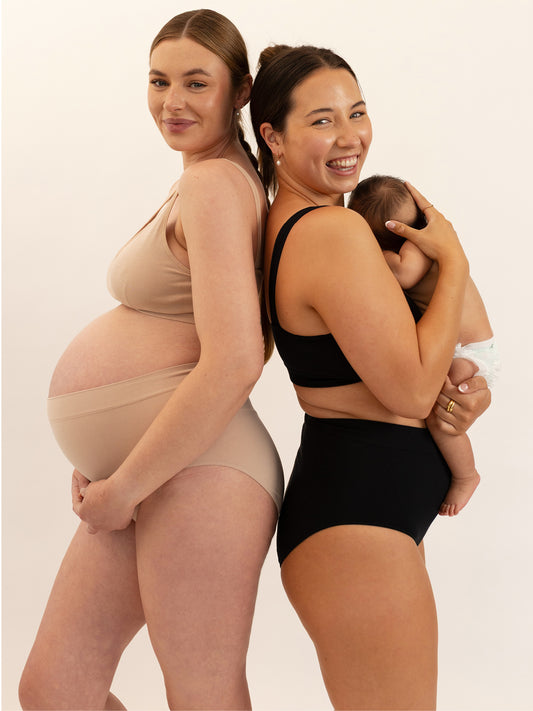"Did you know that early preventative pelvic floor muscle training can prevent and reduce pelvic floor issues in late pregnancy and postpartum?"
Well renowned Pelvic Health Physiotherapist Jess Jenkins from The Mama Physio chats to us at M. Magazine about some key things you can do to prepare for one of the biggest physical experiences you're about to embark on during your pregnancy and birth.
Can you tell us a little bit about yourself?
I’m a first time mother, Pelvic Health Physiotherapist, and Pilates Instructor, also known as @the.mama.physio
I’m currently slowly returning to work from maternity leave and consulting a couple days a week alongside an Obstetrician, Dr. Scott Shemer in East Melbourne.
I also run an online pre and postnatal Pilates app called MOVE.

You recently became a mum, welcoming your little girl Annabelle in December last year. What has motherhood been like for you?
Motherhood has been everything I expected, but better! It’s definitely a steep learning curve, but I feel like I had been prepared for the realities of motherhood and that has eased the transition to a mum. I feel fortunate enough to have a lot of family support, and a fantastic community of mothers around me. I couldn’t imagine going through this phase of life without them.
I was filming my online app during and after my pregnancy so I was doing Pilates 3-5 times a week and walking most days. Rehabilitating after brith is my bread and butter so I knew it was important to practice what I preach!
As a physio, how did you prepare your body for childbirth, and what are your top tips?
I know that staying strong and active in pregnancy will keep you pain-free, help you prepare for childbirth, and hasten your recovery. Once my energy levels were up after the first trimester I stayed active by doing Pilates and strength training. As the end of my pregnancy approached I changed my workout style to incorporate more mobility and stretching. My whole workout routine is up on my app, and I encourage all mums to try and incorporate these at least a few times a week.

Childbirth is likened to a marathon. What sort of physical endurance does a mother's body / muscles undergo during this process and how can we be gentle on our bodies in terms of recovery and not putting too much pressure on ourselves?
You are completely right - childbirth is definitely a marathon and pregnancy itself has been likened to running a 40 week marathon too! This is why we need to strengthen and get confidence in our bodies to prepare for birth.
"During a vaginal birth the pelvic floor muscles stretch up to 300% of their resting length (this is the only muscle in the body that stretches this much!) which in itself explains the importance of resting for recovery.Lots of horizontal time is so important to help everything slowly retract and heal."
Pelvic Health pre and post-birth. Can you give some insight?
It is really common to experience pelvic floor issues pre and postnatal which is why I see so many women during this chapter of their life.
Issues such as leakage, heaviness or dragging (prolapse), sexual pain and trouble emptying your bowels are common things I will treat. There is evidence that preventative pelvic floor care in pregnancy can prevent issues arising during and after birth which is why I am a huge advocate for prenatal checks.
I always recommend a postnatal check as well - that is, to check your abdominal muscles, pelvic floor, bladder and bowels, and guide you back to your goals.

Any tips for C-Section recovery?
My top tips for recovery after a c-section are:
To wear compression garments for the first 6-8 weeks to support your scar, prevent swelling and help your abdominal muscles heal.
Avoid constipation by keeping fluids up, eating a fibre rich diet, and taking laxatives if this doesn’t help. You do not want to be straining on the toilet when healing!
Start moving but make sure it is gradual and safe movement. Evidence tells us that early movement helps recovery from surgery but we need to find balance! It should take approximately six weeks to feel comfortable walking 30 minutes. You can also add some stretches and beginner exercises into your routine too. Check out my app for specific guidance each week.
Your favourite postpartum products?
Compression garments! I always recommend them to my patients in the early postpartum period, and having tried them for myself I cannot recommend more.
A capsule if you are in your car a lot. It is an absolute godsend to be able to transfer your baby in and out of the car without waking them up.
A good nursing chair. There is a reason I have not had a single bit of back/neck pain in my postpartum period and it is definitely my feeding set-up and chair.
Comfortable, leakproof, nursing bras! I lived in my Mumma Milla leakproof nursing night bra and cami postpartum! The cami is stylish enough to put on with a pair of jeans and leave the house (my mum uniform), and the night bra was a great shape to fit under all my clothes.
A Baby Bjorn Bouncer. This moves around the house with me to keep Belle entertained whilst I shower, do the washing, cooking etc

Jessica wears our leakproof nursing cami.
How has your breastfeeding journey been. The highs and the lows?
I had a relatively smooth start to breastfeeding…. Good latch, supply etc which I feel very fortunate about! I did do a lot of preparation pre-pregnancy so I feel this was part of the success.
Unusually I started getting cracked and sore nipples from about three months which I stupidly put up with for weeks!! I remember seeing my lactation consultant and she said it was the worst she had ever seen and I almost cried because it was validating how much pain I had been putting up with!! This has happened a few times since and it is definitely the low point of my journey.
Currently, I’m navigating a different journey since I have returned to work two days a week and I am trying to exclusively breastfeed. I’m pumping whilst at work and sending it to daycare and it's been a struggle to make sure I pump enough. I take my hat off to anyone who is exclusively pumping because it has been very hard!
Some interesting facts that we may not know about? - Our muscles, pelvis, childbirth etc :)
I’ve got loads of facts up my sleeve!
My favourite is that your VO2 max (how we measure fitness) increases in pregnancy and can last for up to 12 months post-partum! This is because our body is working extra hard to pump blood through two bodies for 40 weeks.
I love telling patients this because even without doing any extra exercise you are getting more fit.

How can mums work on their pelvic floor in the comfort of their own home?
I have been a Pilates instructor for years and years, and had started up an online studio during COVID to support my patients. This slowly evolved over time into an app called “MOVE with The Mama Physio”. It has weekly program for pregnancy, early postpartum and postpartum, which includes workouts I have tried and tested myself in my own pregnancy, and educational content to keep you pain-free, leak-free and confident pre and postnatal!
I have an exclusive discount for M Magazine readers: You can use the code MUMMAMILLA for a 20% discount off the monthly and yearly MOVE memberships.


